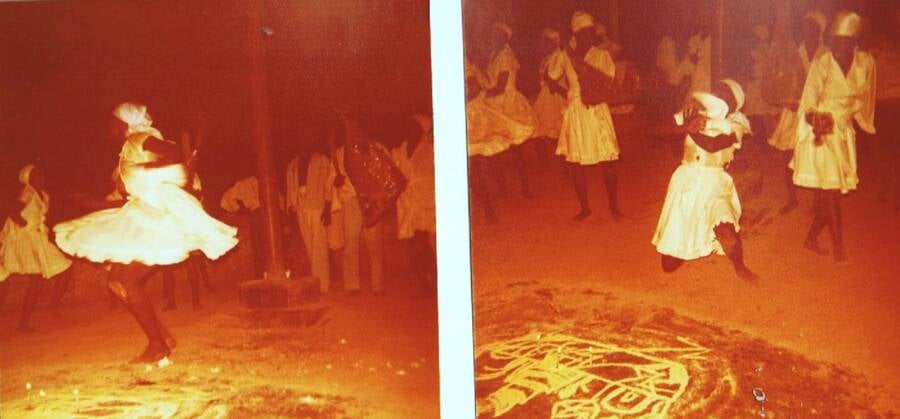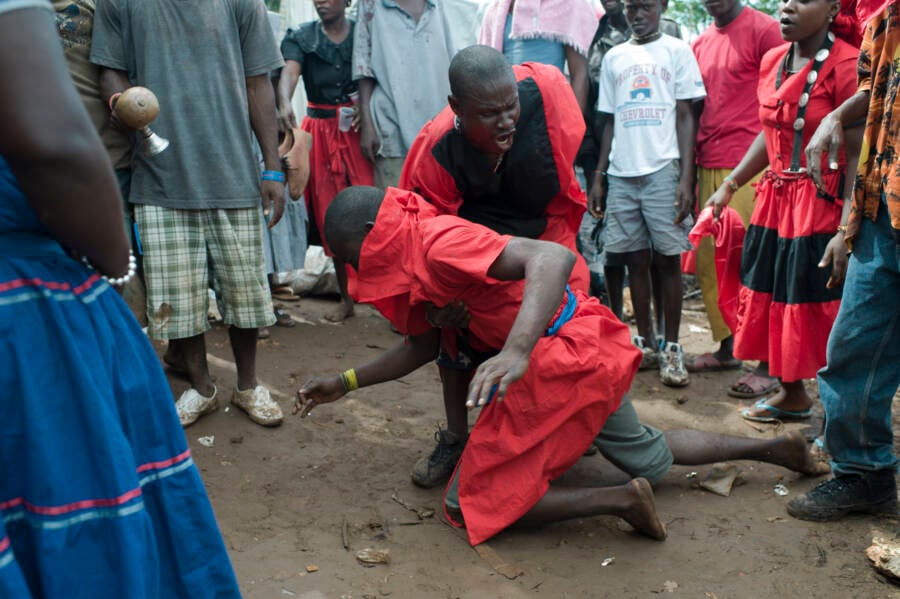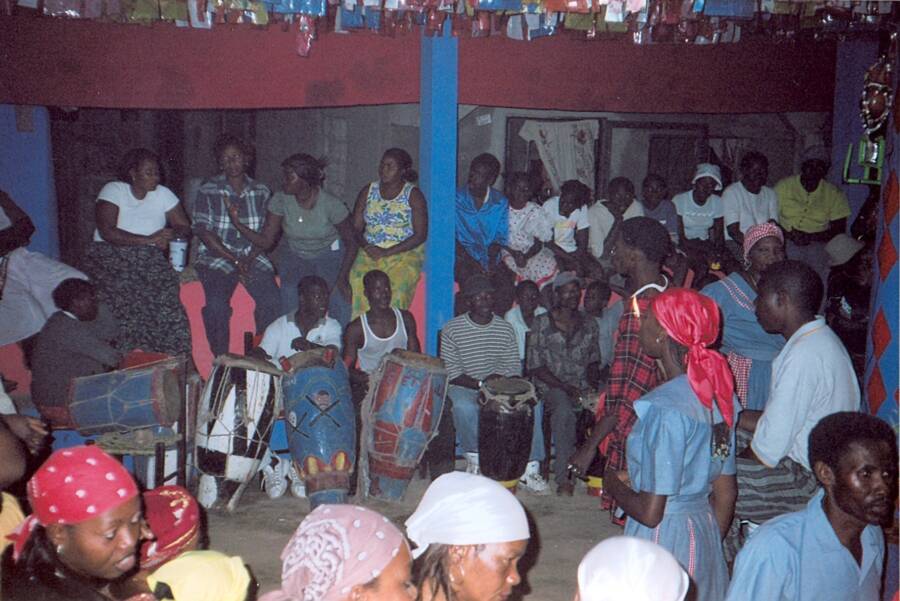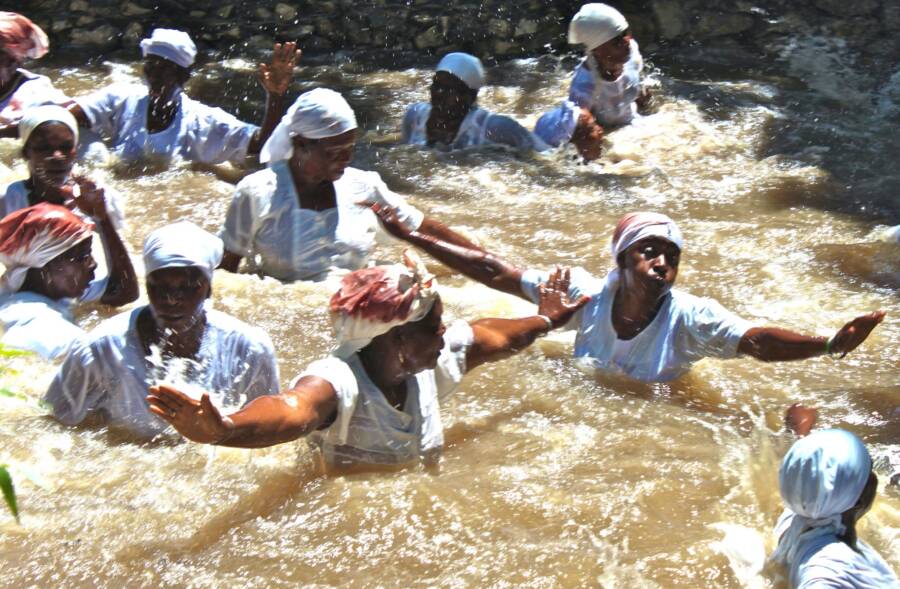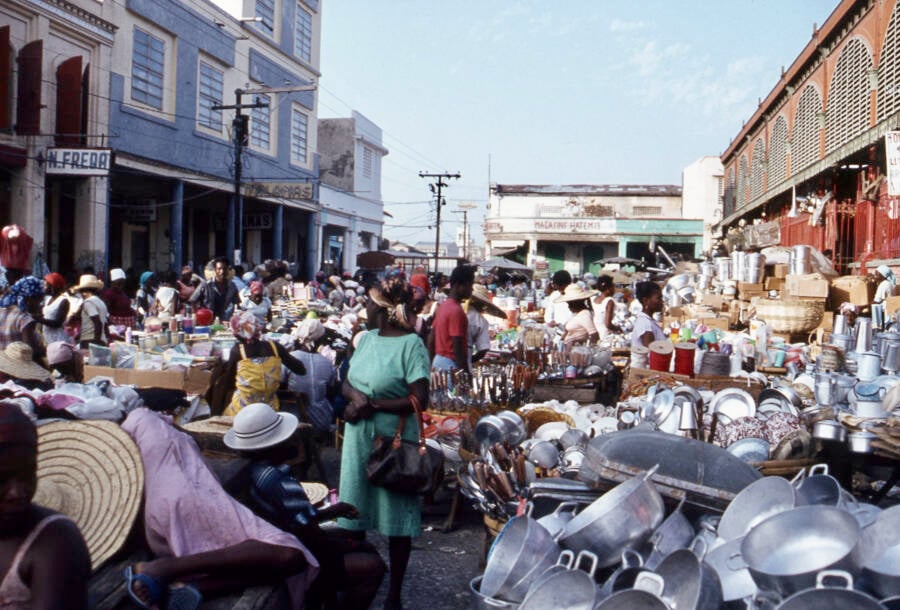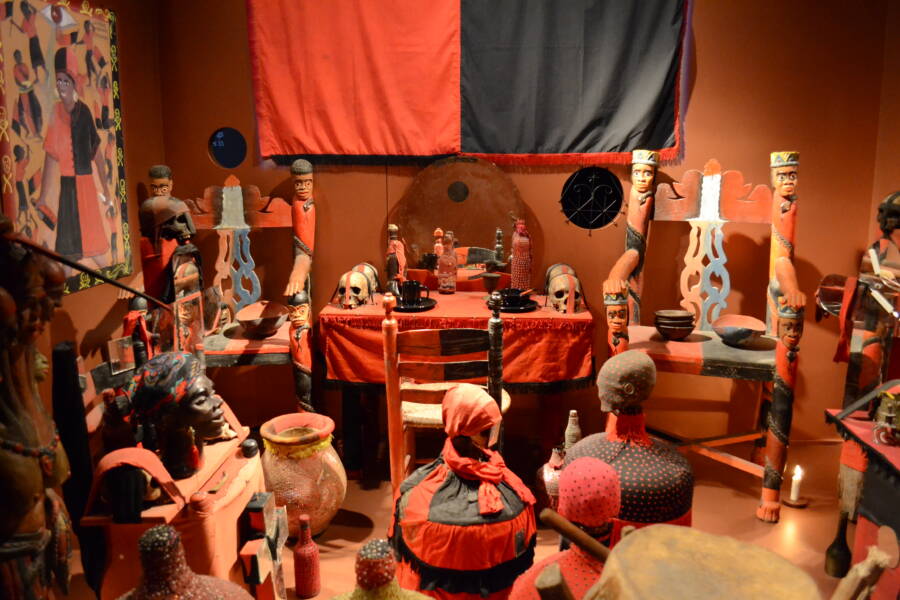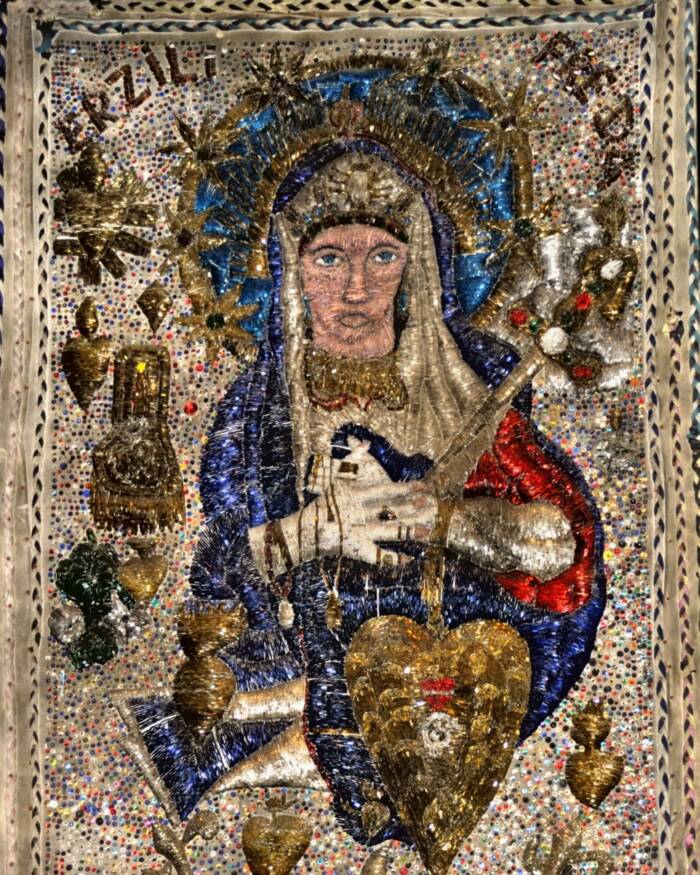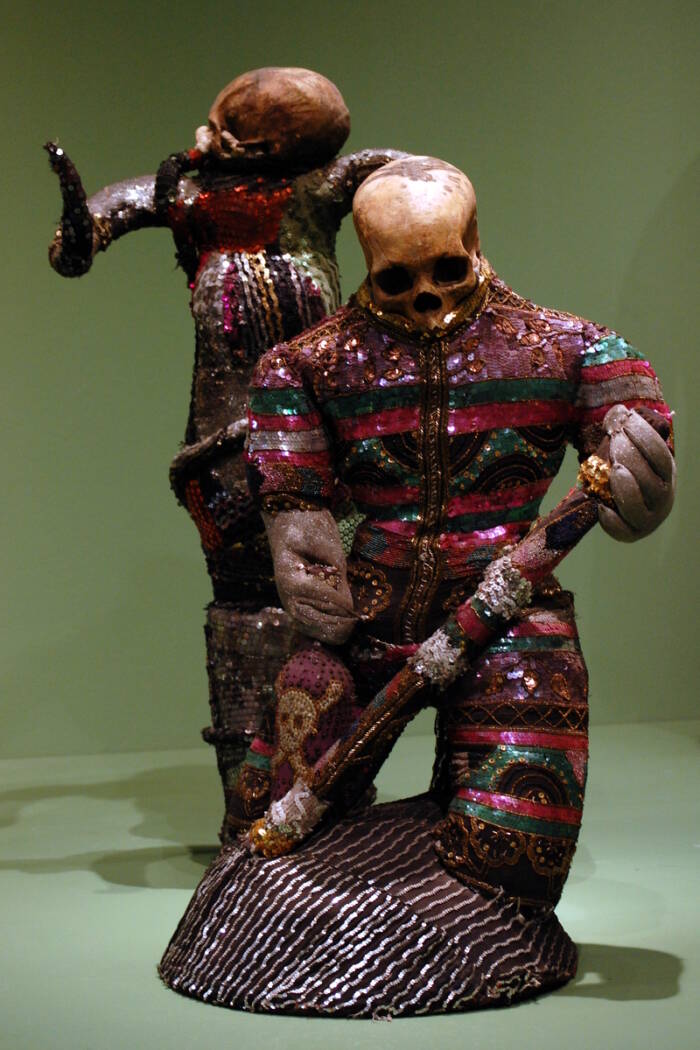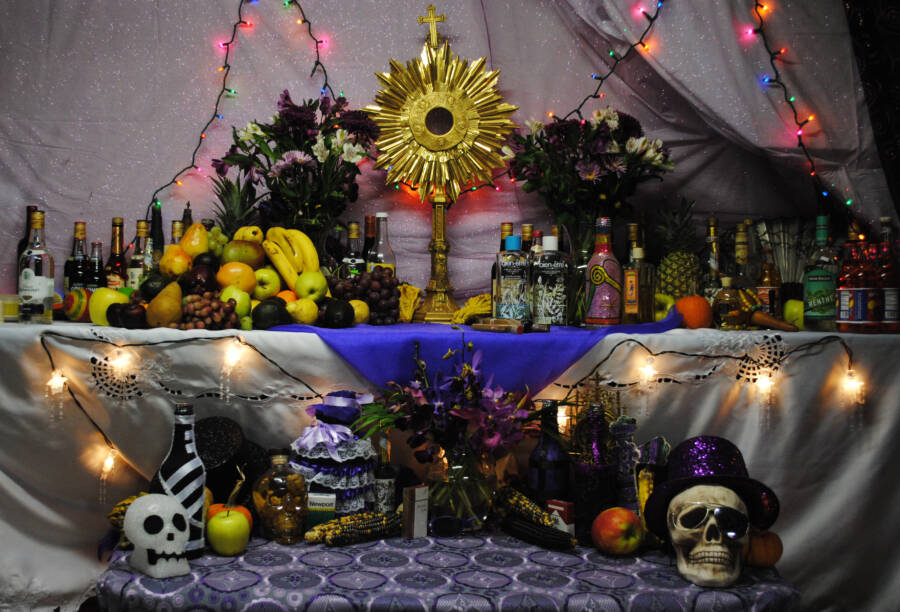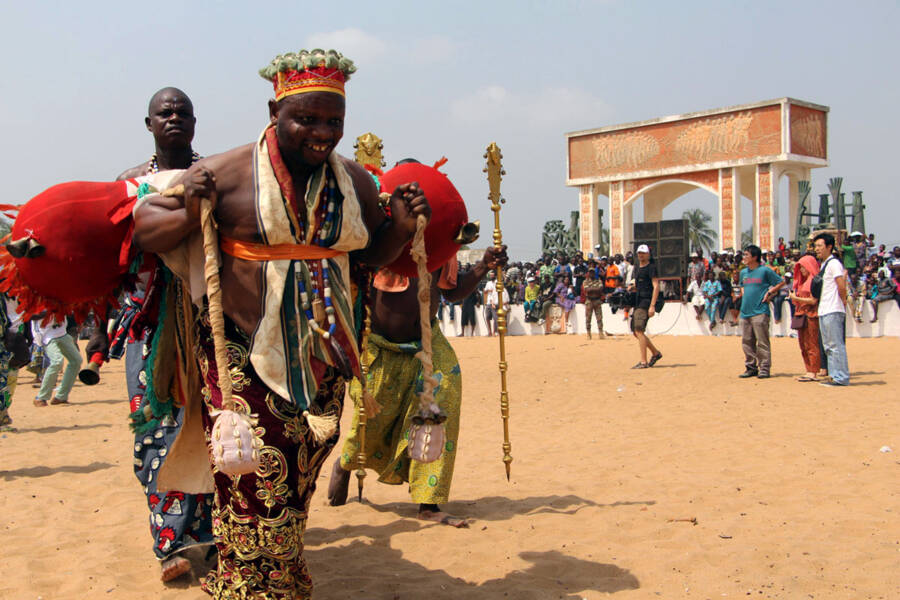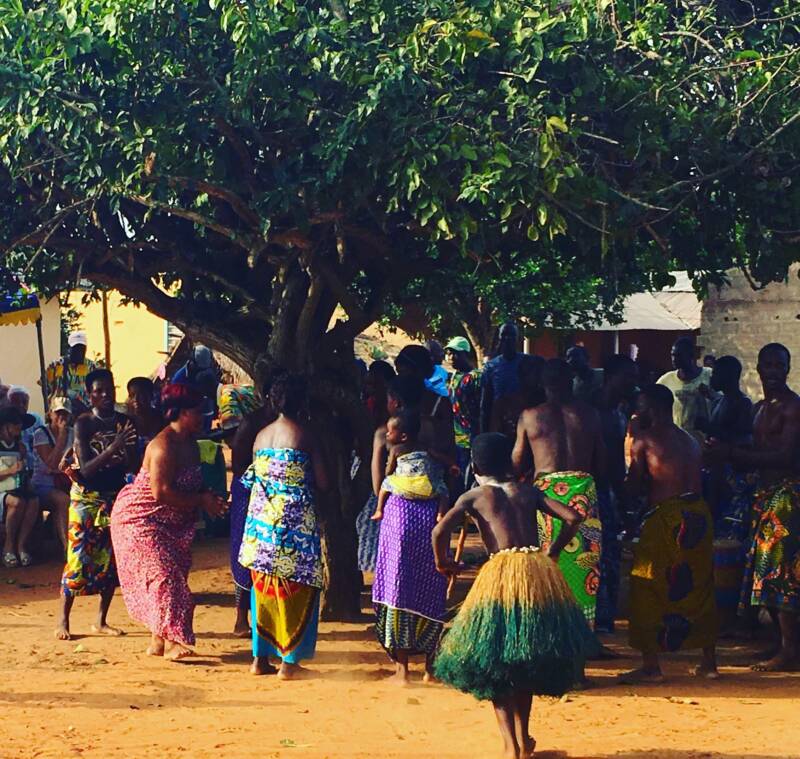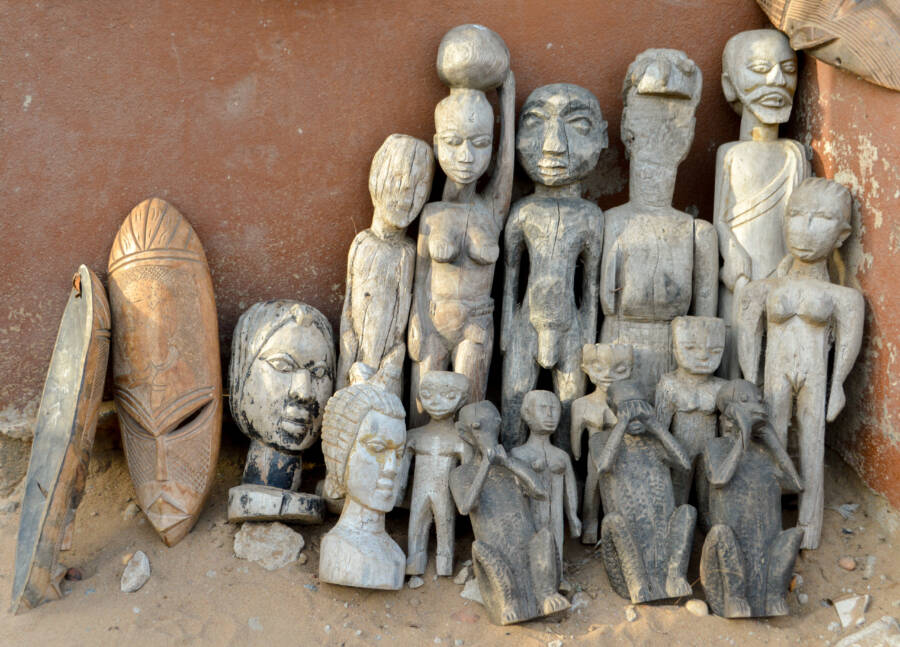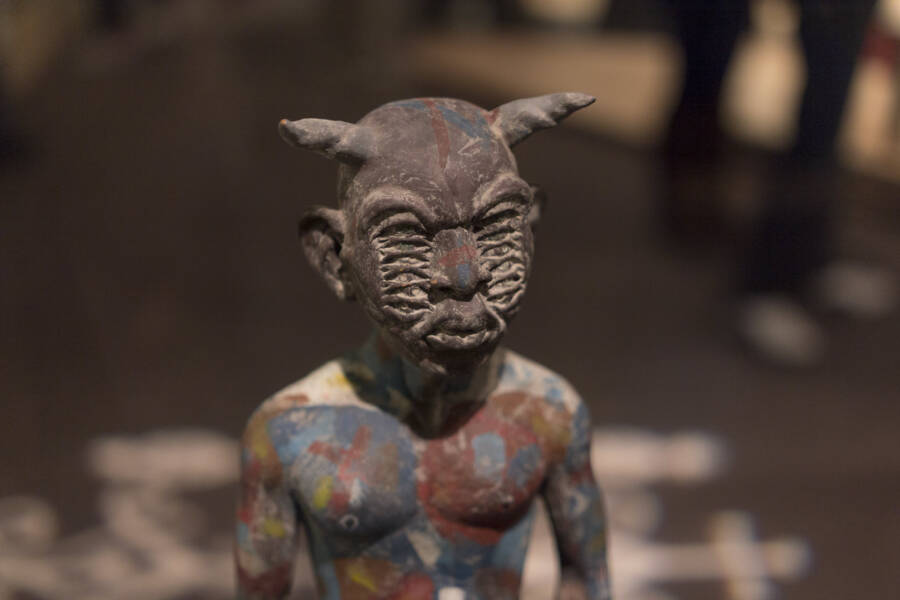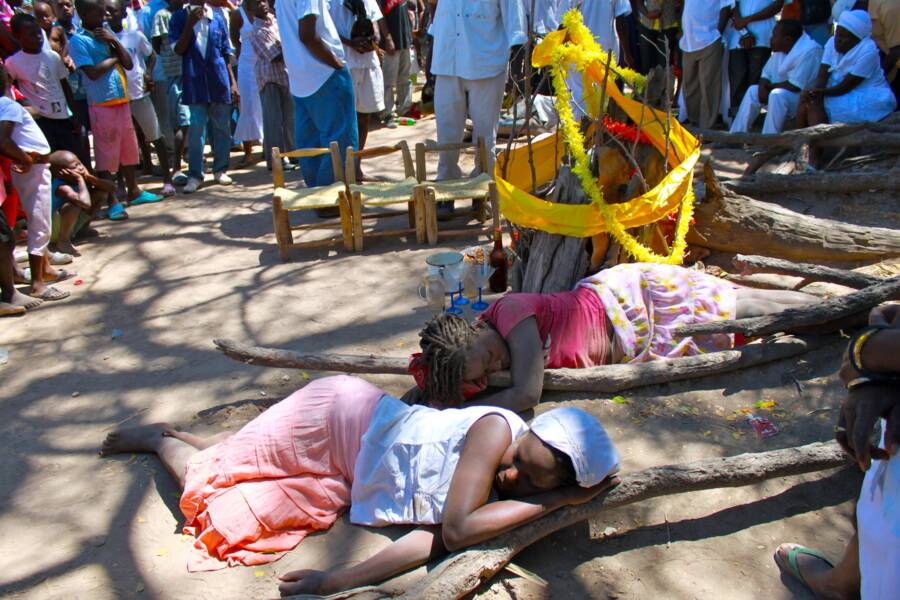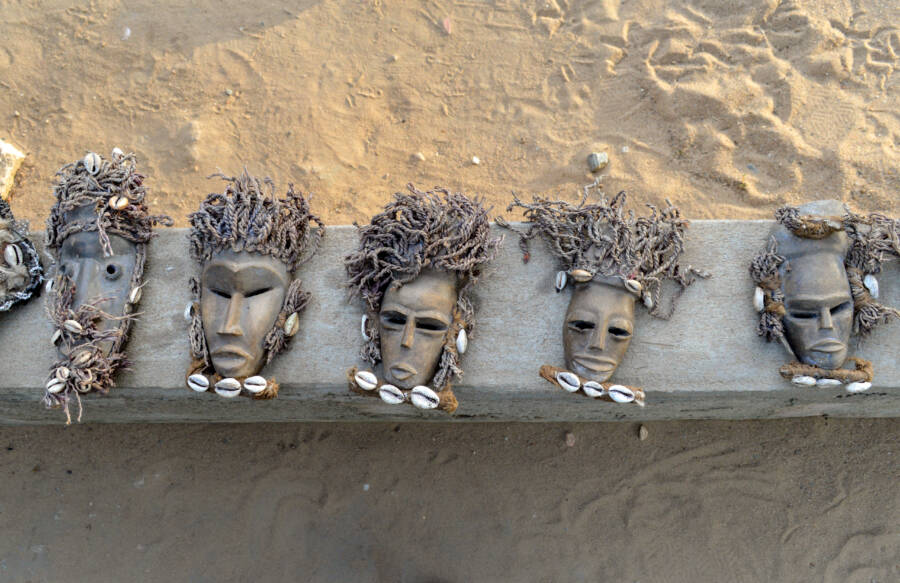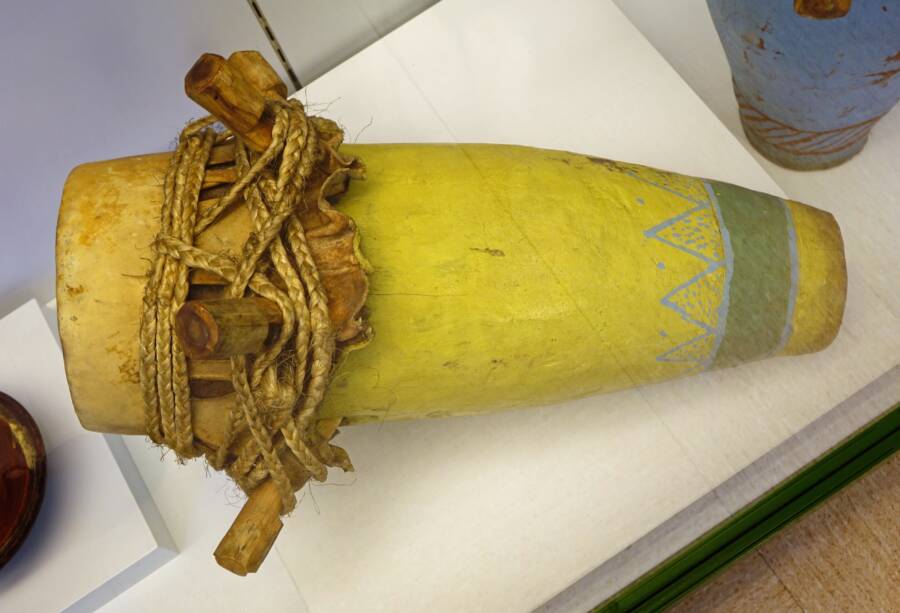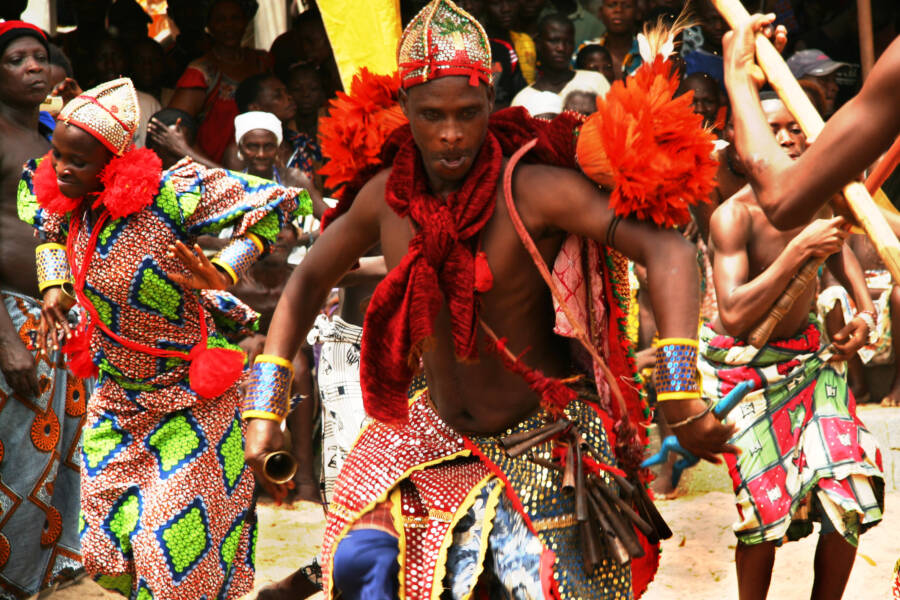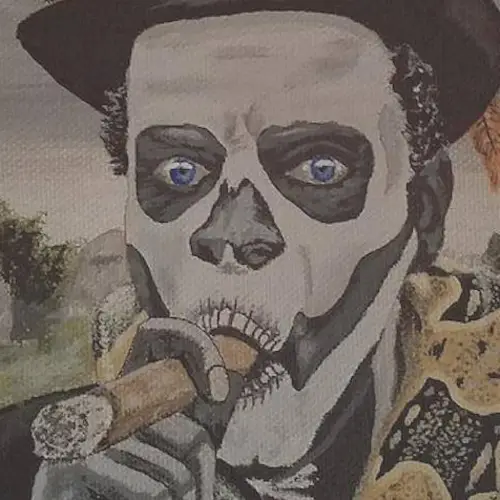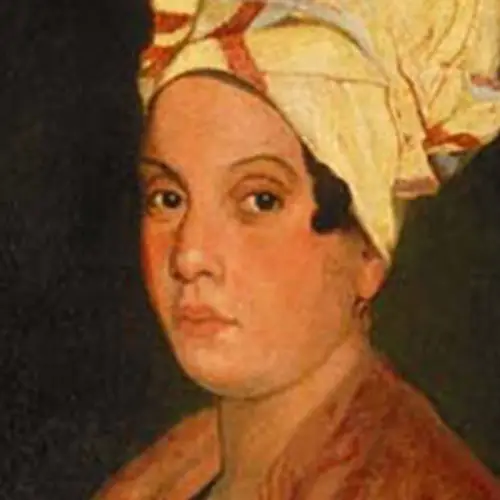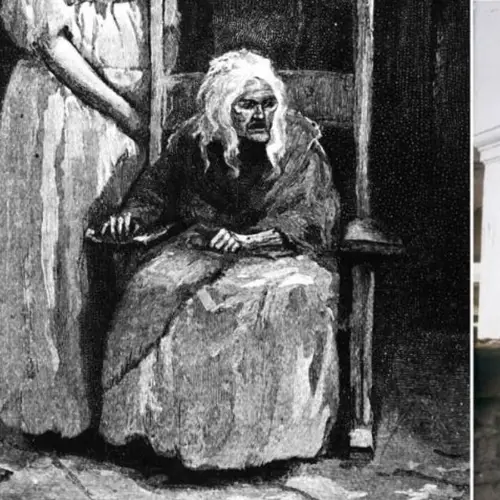Originating from enslaved West Africans taken to the Americas during the transatlantic slave trade, Voodoo is one of the world's most misinterpreted religions.
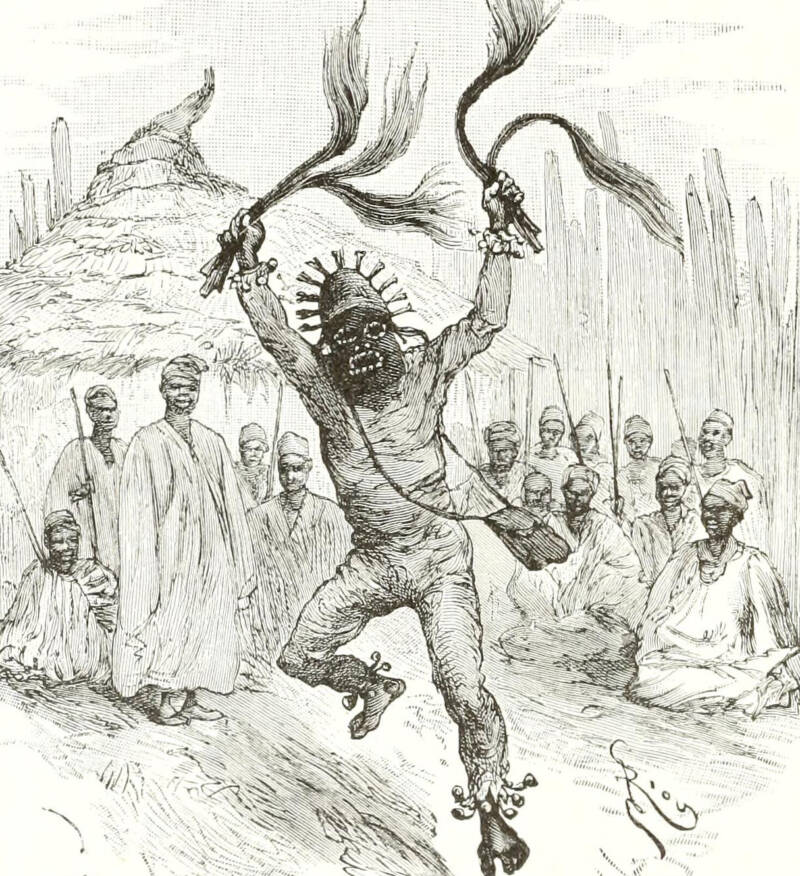
Public DomainA late 19th-century illustration of a Voodoo ritual.
In popular media, Voodoo is often portrayed as a sort of “dark magic.” Some people even believe that Voodoo is inherently evil, thanks in part to tropes involving Voodoo dolls, subjectively macabre imagery, and rituals that differ greatly from those practiced by more Abrahamic religions.
But Voodoo (often spelled Vodou or Vodú) is not an evil religion. Instead, it emphasizes a deep connection to the spiritual world. And the spirits summoned in Vodou rituals, lwa, are somewhat similar to the Christian notion of saints. And despite claims that Vodou is Devil worship, the Devil does not actually appear in most versions of Vodou cosmology.
In fact, it might surprise some that Haitian Vodou is partially inspired by Christianity and combines traditional West African religions with Roman Catholic beliefs. As Vodou rose to prominence amongst enslaved people in modern-day Haiti between the 16th and 19th centuries, a similar practice also eventually made its way to the United States.
Enslaved people who were taken from West Africa to America in the early days of the nation’s founding also brought their traditional beliefs with them. Like in Haiti, the West Africans in modern-day Louisiana also merged traditional West African religions with Roman Catholicism, leading to Louisiana Voodoo (also known as New Orleans Voodoo). And after a 1791 slave revolt in Haiti, many followers of Haitian Vodou fled the country and settled in Louisiana, bringing their influence to that region too.
Though many tried to put a stop to Haitian Vodou, Louisiana Voodoo, and other West African diasporic religions, they endure to this day, especially in the Caribbean and New Orleans. Fortunately for practitioners, the general opinion of Voodoo (or Vodou) has started to change, albeit a bit slowly.
The Fascinating Origins Of Haitian Vodou
Like with many religions, it's difficult to pinpoint a specific time when Haitian Vodou emerged. Generally, historians point to the 16th and 17th centuries, as this is when it first rose to prominence among enslaved people in Haiti — and when it was partially Christianized by Roman Catholic missionaries.
The foundations of Vodou evolved from different traditional religions across West Africa. The word "Vodou" itself, in the Fon language of the African kingdom Dahomey (present-day Benin), translates to "spirit" or "deity." As West African ethnic groups were enslaved by European colonists, they were forcibly taken to colonial Saint-Domingue (present-day Haiti), where Roman Catholic missionaries began to teach them about Catholicism.
The enslaved West Africans took these teachings and started to mix them with the beliefs they had long held, especially the West African Vodun religion. The result, essentially, was Vodou, a belief that everything is spirit.
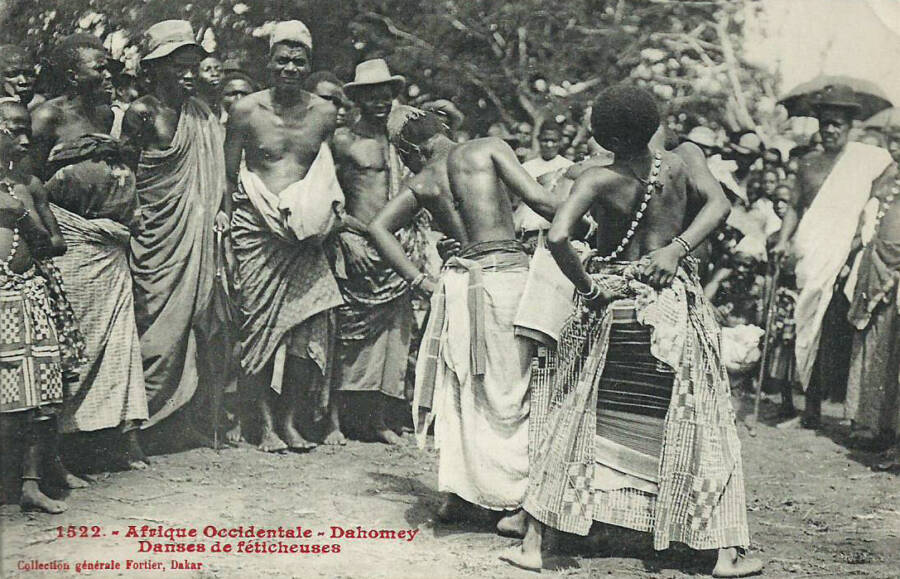
Public DomainA ritual dance in West Africa, photographed in the 1920s.
According to Vodou, human beings are spirits who live in the visible world, but many spirits exist beyond that. Lwa (spirits), mysté (mysteries), anvizib (the invisibles), and zanj (angels) all exist in an unseen spiritual world, alongside the spirits of those who have died. This spiritual world is called Ginen, and Vodou practitioners believe that this world and everything else was created by God — the same God worshipped by Christians.
This new religion became incredibly important to many enslaved people from West Africa. According to a report from the University of Delaware, it served as a way for these people to feel a sense of freedom despite their enslavement and persevere through unthinkable hardships.
They were forced to keep their religious practices discreet, though, as slaveholders had baptized them as Catholic and threatened those who practiced Vodou openly. While the slaves did adopt some Catholic beliefs, they also continued to practice their traditional beliefs — albeit in secret.
Vodou Rituals, Spirits, And Worship
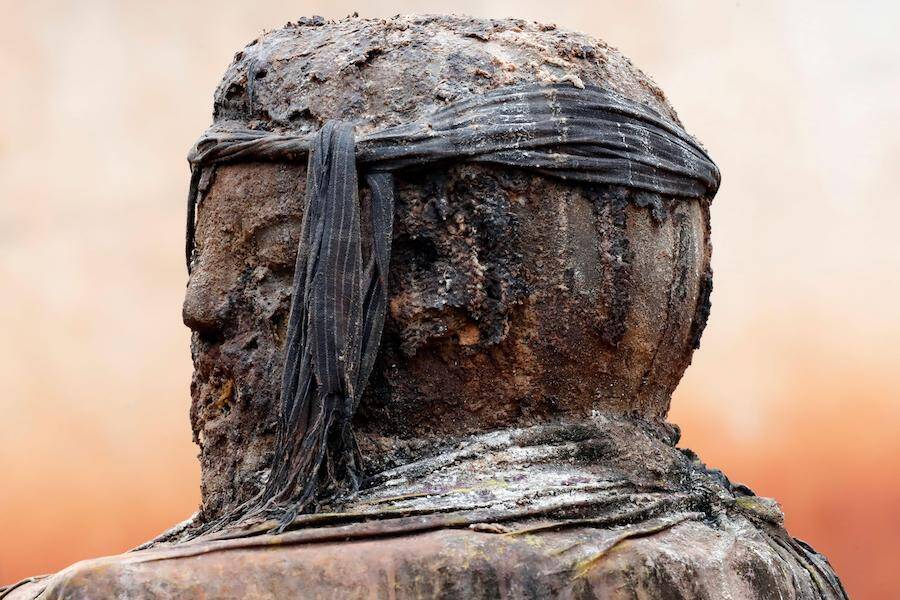
Godong/Alamy Stock PhotoA depiction of Papa Legba, one of the most important lwa spirits in Vodou tradition.
Unlike Christianity, there is no sacred book of Vodou worship (at least, not an official one, like the Bible). It is primarily based on an oral tradition, passed down from generation to generation. Rituals include prayer, songs, dances, gestures, and sometimes animal sacrifice, all with the aim of restoring the balance in relationships between people and between humans and spirits.
Some spirits summoned by Vodou practitioners are ancestral spirits or spirits of the deceased, but there are other prominent spiritual figures — such as Papa Legba and Baron Samedi — who can also be summoned through specific rituals if people want to communicate with them.
There is no central hierarchy within Vodou, and many parts of the worship vary from region to region. In most instances, though, there are smaller local hierarchies of manbo and oungan (priestesses and priests), ounsi ("children of the spirits"), and ountògi (ritual drummers) who comprise more formal congregations. Knowledge in these congregations is passed on through the ritual of kanzo (initiation), in which it is believed that the human body becomes the site of a profound spiritual transformation.
And like Roman Catholicism, Vodou worshippers have a yearly calendar of ritual feasts, which typically align with similar celebrations that are listed on the Roman Catholic calendar. Instead of the Christian saints, however, Vodou practitioners worship specific lwa spirits on these feast days.
This sort of "Christianization" of Vodou started in Haiti, but it also occurred later on in Louisiana, as enslaved groups of people there also merged traditional West African religions with Roman Catholicism, creating New Orleans Voodoo (or Louisiana Voodoo). The history of slavery is intrinsically linked to how Vodou (or Voodoo) developed, and as tragic as that is, it can't be understated how big of a role enslavement played in Vodou's evolution.
How The Brutality Of Slavery Led To The Evolution Of The Vodou Religion
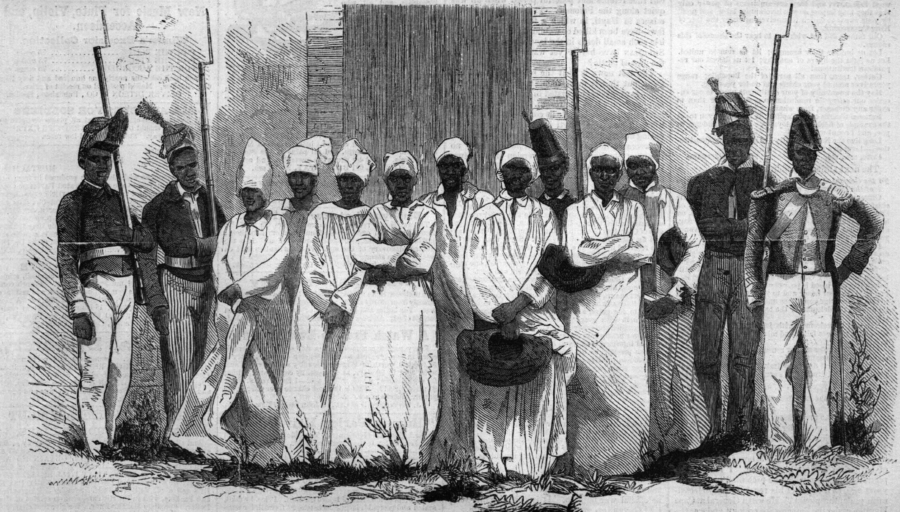
Public DomainThe Affaire de Bizoton of 1864, when the alleged murder and cannibalization of a child by eight Vodou devotees caused a worldwide scandal, leading some to claim that this incident served as "proof" of the evil nature of Vodou.
In the French-established Saint-Domingue, Vodou first began to develop in present-day Haiti. In the modern-day United States, further development of Voodoo later occurred in a French-controlled territory: Louisiana. Amidst the slave trade, conditions for enslaved people were horrifically cruel, as they were forced to work morning until night. Slaveholders whipped and abused slaves, and even tried to prevent people who came from the same ethnic groups from spending too much time together and possibly unifying.
Despite this, many slaves still bonded over their shared suffering, and their ties to religious practices from their homeland offered some sense of security and peace. It's no wonder why Vodou became so crucial to them.
As the Open Encyclopedia of Anthropology put it: "If the slave trade is a process of deportation that tore the individual away from his or her family, lineage, and clan, it is only to be expected that when a slave dies, every possible step must be taken in order to enable the restoration of links with the native land... The religious and cultural heritage of Africa was gradually restored through this semantic chain, which represented the link between the dead person and his or her ancestors and their divinities."
In trying to snuff out African religious practices, white slaveholders inadvertently strengthened some slaves' ties to those beliefs and rituals. As such, those ties never truly went away, and this turbulent period in time contributed greatly to the Vodou (or Voodoo) of today.
Unfortunately, many people today still have misconceptions about Vodou, and it remains one of the world's most misunderstood religions. Recent years have seen a strong reclamation of Vodou in certain communities.
How Modern Worshippers Are Reclaiming Vodou
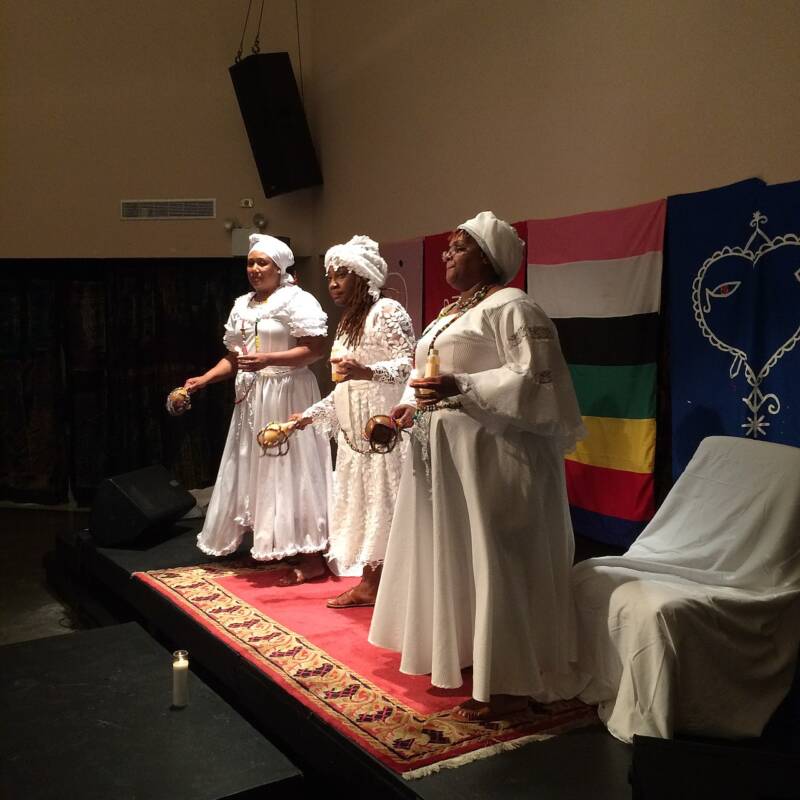
Aliceba/Wikimedia Commons/CC BY-SA 4.0A modern Vodou ceremony in New York City.
Ever since the days of slavery on Saint-Domingue, people have tried to stoke fear and concern over Vodou worship. Of course, this was initially done as a way of convincing West Africans to convert to Catholicism and cease the practice of other religions like Vodou, but the unfortunate side effect of this is that even today, centuries later, certain misconceptions have stuck.
According to The Atlantic, for example, a slaveholder by the name of Médéric Louis Élie Moreau de Saint-Méry once wrote, "In a word, nothing is more dangerous, according to all the accounts, than this cult of Vaudoux. It is founded on the extravagant idea, which can be made into a terrible weapon, that the ministers of the said being know and can do anything."
Some still see Vodou as dangerous today, especially due to the common presence of "Voodoo dolls" in pop culture. In horror movies and thriller films, these dolls are often depicted as spiritual weapons, which can harm another person if they're simply poked with a needle. But in reality, these dolls aren't prominent in Haitian Vodou or Louisiana Voodoo. And when they have been used, they've mostly been utilized for healing purposes rather than revenge.
Most Vodou practitioners say the religion should not be considered "dark magic" or evil in any way — if anything, it represents a hope and a connection to the spiritual world that has helped many people through turbulent times. As one worshipper, Alain Pierre-Louis, told The Atlantic, "Vodou is very big on respecting nature, remembering the ancestors, and the rhythm and vibration through dance, song, and the drum. Vodou is energy."
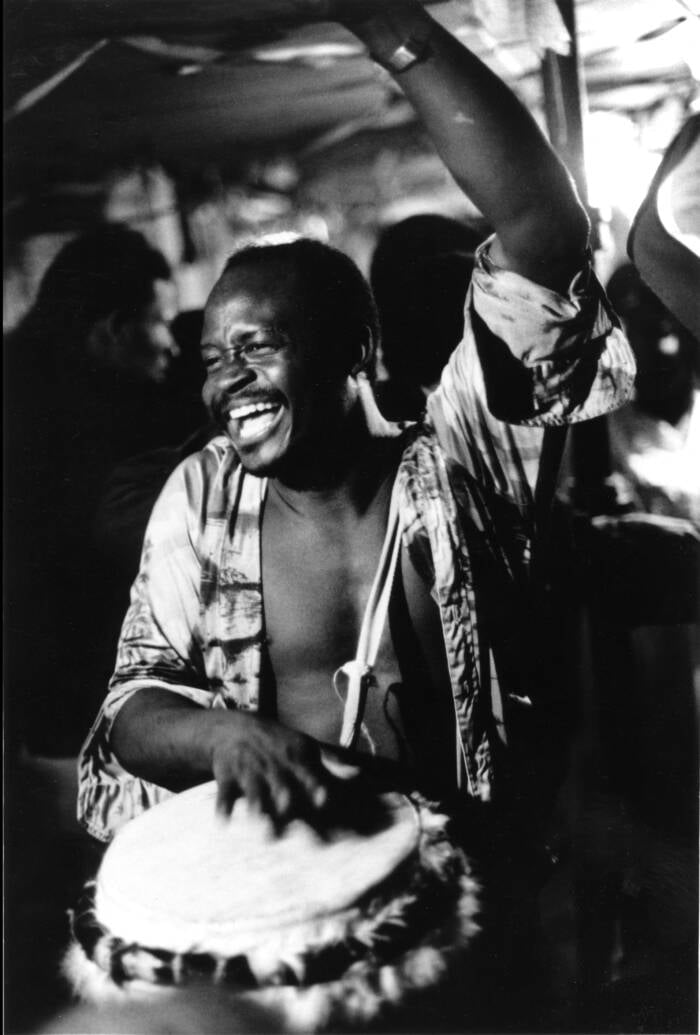
Wikimedia CommonsComposer Frisner Augustin drumming during a Haitian Vodou dance in Brooklyn.
Today, many refer to Vodou as the "national religion" of Haiti, though the Haitian government does not officially state this. But Haiti did declare Vodou an official religion in 2003, and granted the country's Vodou communities the right to issue official documents. And there is a popular saying that Haiti is "70 percent Catholic, 30 percent Protestant, and 100 percent Vodou."
It's clear that Vodou is a culturally significant religion, one that endured brutal conditions, much like its worshippers. Every year, new practitioners turn to Vodou, finding an accepting and vibrant spiritual community.
As anthropologist Ira Lowenthal once remarked to The Guardian in 2015, Vodou represents an unbreakable revolutionary spirit.
"These people will never be conquered again," Lowenthal said. "They will be exploited, they will be downtrodden, they will be impoverished — but you can tell not a single Haitian walks around with his head down."
After learning about Voodoo, read about Marie Laveau, the "Voodoo Queen" of 19th-century New Orleans, and her famous tomb, where some believe she continues to work her magic from beyond the grave.
